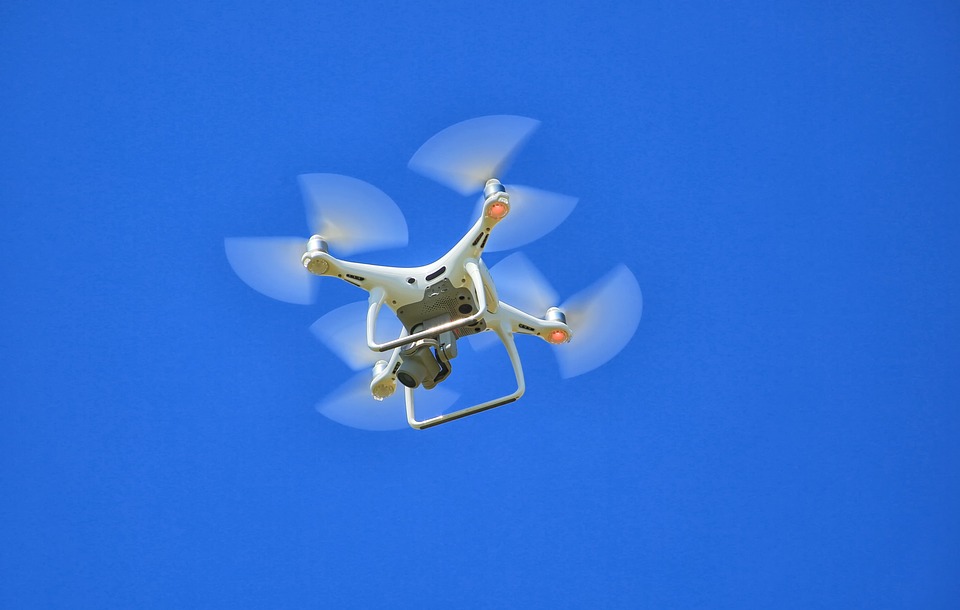The U.S. Commerce Department announced on Thursday that it is considering new regulations that could impose restrictions or outright bans on Chinese-made drones, citing concerns over national security. This potential move comes in the wake of a recent escalation in trade tensions, with China imposing its own restrictions on 28 U.S. companies. These developments highlight the growing friction between the two global powers, especially in the realm of technology and cybersecurity.
National Security Concerns
The U.S. government has long expressed concerns that Chinese-made drones, which are widely used in both commercial and government sectors, could pose significant risks to national security. U.S. officials have raised fears that these drones may be used to gather sensitive information or transmit data back to the Chinese government, either inadvertently or intentionally. In particular, the U.S. has scrutinized companies like DJI, a leading Chinese drone manufacturer, which has faced accusations of being tied to Chinese state surveillance efforts.
The proposed restrictions would further limit the use of these drones in U.S. airspace, particularly for critical infrastructure, military applications, and law enforcement. This move is part of broader efforts by the U.S. government to curtail the influence of Chinese technology in sectors deemed vital to national security.
Retaliatory Measures from China
The looming restrictions come just days after China imposed its own sanctions, targeting 28 U.S. companies and restricting their access to Chinese markets. These actions are seen as a direct response to the U.S. blacklisting Chinese firms and limiting their participation in American technology sectors. The back-and-forth between the two nations over technology and security issues has added further complexity to the already tense trade relationship.
Both countries have used their technological prowess as leverage in the ongoing geopolitical standoff. While the U.S. has pushed for greater scrutiny of Chinese tech, China has retaliated by limiting access to key markets and promoting its own technological alternatives. The growing influence of Chinese tech companies, particularly in AI, drones, and telecommunications, is seen as a challenge to U.S. dominance in these industries.
Implications for the Drone Industry
If the U.S. moves forward with restrictions, the impact on the global drone market could be significant. Chinese manufacturers, led by DJI, are dominant players in the sector, accounting for a large share of global drone sales. The imposition of restrictions or bans would force U.S. companies to seek alternatives, potentially opening the door for domestic drone manufacturers to fill the gap.
However, such actions could also disrupt global supply chains, which rely heavily on Chinese components and technology. For U.S. consumers and businesses that rely on Chinese drones for commercial purposes, the potential restrictions may lead to higher costs and limited availability of drones.
Broader Geopolitical Context
The growing tension between the U.S. and China over drones is part of a broader geopolitical rivalry that spans issues of trade, technology, cybersecurity, and military influence. As both nations continue to vie for global leadership in emerging technologies, the battle over who controls key sectors like telecommunications, artificial intelligence, and autonomous systems is likely to intensify.
The U.S. is also concerned about China’s growing technological influence in regions such as Africa, Asia, and Europe, where Chinese companies are increasingly supplying infrastructure and technological services. This has led to efforts by the U.S. and its allies to counter Chinese influence through initiatives like the “Clean Network” program, which seeks to keep Chinese technology out of sensitive networks.
Conclusion
The potential U.S. restrictions on Chinese drones reflect the broader tensions in U.S.-China relations, particularly in technology and national security. As both countries navigate their increasingly adversarial relationship, these moves are likely to have wide-ranging consequences for global trade, the technology industry, and geopolitical alliances. The drone industry, already in a state of flux, may face new challenges as the U.S. and China continue their technological rivalry.



